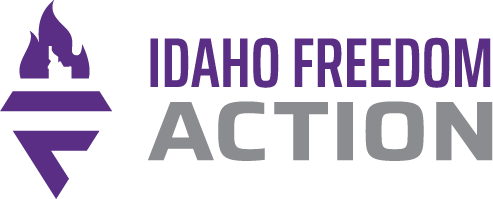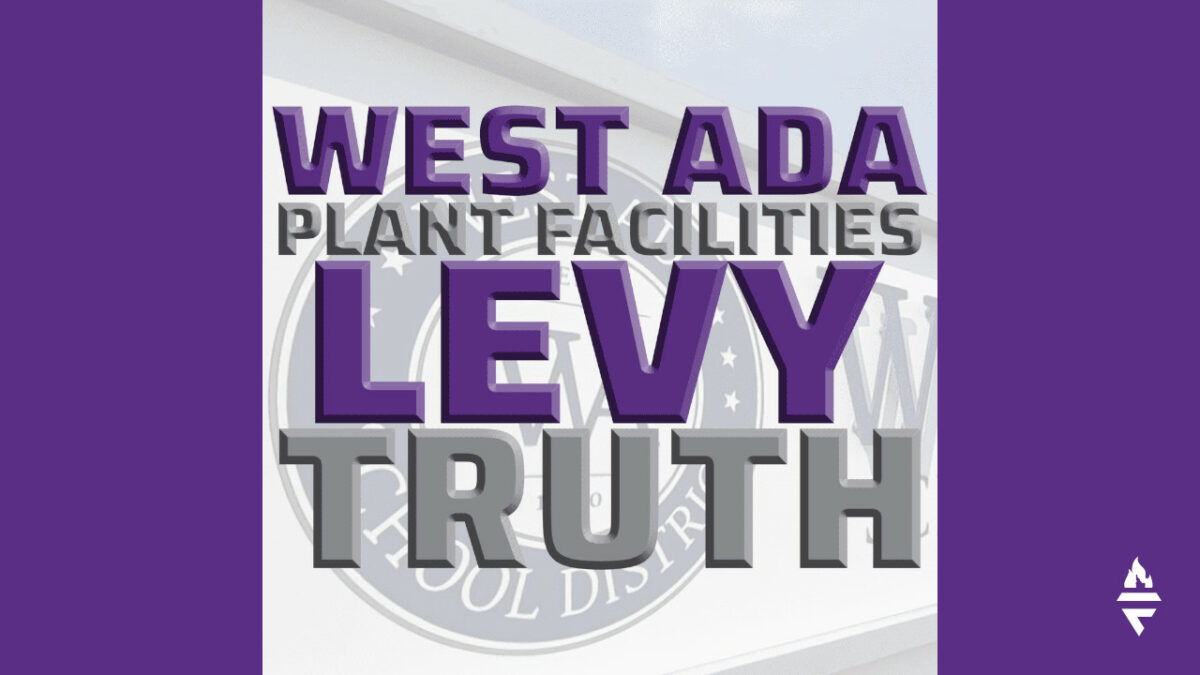A majority of West Ada School District (WASD) voters on Tuesday saw through the school district’s cynical plan to pass a half-billion-dollar levy. They rejected the proposal with 42.5% in favor and a resounding 57.5% against.
We would like to take this opportunity to thank our supporters. Without you, we could not have raised the substantive questions about the district’s plan that went unreported in the media. This included spending on a new daycare center for school district employees, as well as capital projects that should have been addressed in a bond, not a levy.
However, there is more work to do, as evidenced by the tactics employed by school districts throughout the state to win passage of their ballot measures.
In West Ada, for example, school officials asked for a half-billion-dollar plant facilities levy because it’s easier to pass a plant facilities levy than to win approval for a bond. The levy requires only 55% voter approval, rather than the more common two-thirds required for a bond.
Tighter controls are needed for levy elections
When the Legislature originally adopted plant facilities levies (PFLs) in 1963, they were never intended to be used in lieu of a bond. Lawmakers almost certainly never contemplated a situation like we have in WASD today—a district so large and with so much market value that the limitations of 2/10ths percent of market value would allow for a PFL larger than the entire public education budget from just three decades prior.
That intention was made all the more clear when the law was amended in 2009 to allow school districts to convert PFLs to supplemental levies. These were supposed to be short-term financing with limited expense. WASD’s half-billion-dollar levy hardly fits that description. This loophole must be closed.
Stop school districts from violating state law to win passage of levies
There is also the issue of school districts flaunting and, in some cases, openly violating the Public Integrity in Elections Act, which prohibits governmental entities, such as school districts, from using school resources to pass bonds and levies. As has become commonplace, there were numerous examples of school districts violating the law or, at a minimum, the spirit of the law.
For example, WASD was found to likely have violated the law by the Ada County Prosecutor’s Office by producing a promotional video in which voters were explicitly told to vote in favor of the levy. This sort of campaigning by public entities was the exact thing the Act was intended to stop.
In Parma, a two-year supplemental levy passed 64-36, but not before the school district toeing the line of electioneering by posting a pop-up message on the district webpage admonishing those who might vote no. Then the district went even further and blatantly violated the law when, on election day, a teacher sent out a district-wide email telling patrons explicitly to vote yes on the levy and saying if they did not, the choir program would be eliminated.
In North Idaho, these tactics were also on full display. In the Coeur d’Alene School District, for example, teachers sent home absentee requests in elementary students’ backpacks and declared a financial emergency with a “hit-list” of schools that would close if patrons didn’t comply with the demands of the district. These fear and intimidation tactics have no place in school district actions.
But here is the problem—districts don’t care if they violate the Act because doing so has no consequences. A slap on the wrist and an instruction to remove the illegal content is hardly a deterrent. Putting teeth in the Act must be a top priority in the next legislative session.
The only real consequence that would catch a school district’s attention would be to nullify the results of an election if a district is found to have violated the law. By putting the very outcome of the election on the line, districts will be forced to play by the rules just like everyone else.
End the practice of repeating elections
In addition to nullifying the election results when districts break the law, the practice of rerunning substantially the same levy or bond in repeated elections must end. If patrons say no, that should be the final answer for at least a year. Because districts are not responsible for the cost of administering elections, they have no incentive to stop continually asking voters to approve their latest money grab. This is not a call to return the function of running elections back to school districts; it is a call to end the practice of giving districts repeated chances.
Throughout the interim and into the next legislative session, we will work with our legislative partners to craft these proposals to protect taxpayers. It is clear that the current laws are inadequate, and changes must be made.

